Honorary Doctorates. Our history. Get to know the University. University of Navarra
On Saturday 28 November 1964, the then Chancellor, Saint Josemaría Escrivá, awarded for the first time the Degree de honorary doctor to Miguel Sancho Izquierdo and Juan Cabrera y Felipe. Since then, the University has awarded its highest academic distinction to 39 personalities.
1964
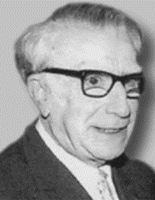
Born in Calanda (Teruel), at the age of nine he moved with his family to Zaragoza, where he lived for the rest of his life. He obtained his doctorate with the highest marks in both Law and Philosophy and Letters from the University of Zaragoza.
His work professor began in 1915 as interim assistant professor of Fundamentals of Law. From 1920 until his mandatory retirement in 1960 he was Full Professor of Natural Law at the University of Zaragoza. This subject, and Philosophy of Law, he continued to teach later as visiting professor of the University of Navarra.
During the Franco regime, he was appointed President of the University of Zaragoza (1941-1954), giving a decisive impulse to the University City. His name and prestige crossed borders and he was invested doctor 'honoris causa' by the universities of Navarra, Bordeaux and Toulouse.
In the political arena, he headed the CEDA candidacy for Teruel in the 1933 elections and was elected deputy in that legislature. Subsequently, during the Franco regime, he was a councilman in the City Council of Zaragoza. After the restoration of democracy, and despite his advanced age, he continued to lend his name and his knowledge to the service of the Aragonese Party, of which he was honorary president until his death.
A staunch defender of Esperanto as a universal language , he was president for years of the Spanish Esperantists, whom he represented at the world congresses in Warsaw and Tokyo.
In the journalistic field, he was director in his youth of the Aragonese newspaper "El Noticiero" and later member of its committee of Administration until his disappearance in 1976.
Miguel Sancho Izquierdo, married to Pilar Rebullida, had nine children, one of whom, Francisco de Asís Sancho Rebullida, was a prominent jurist.
He died in Zaragoza on December 16, 1988, at the age of 98.
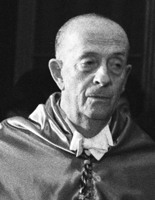 Born in La Laguna in 1898, he studied Physics in Madrid. He obtained the award Extraordinary in the licentiate degree.
Born in La Laguna in 1898, he studied Physics in Madrid. He obtained the award Extraordinary in the licentiate degree.
In 1919 he is appointed assistant professor of Acoustics and Optics at the School of Sciences of Madrid. That same year, he obtained the Extraordinary "Echegaray" award for his thesis " thesis of Gaseous Ions".
One year later, in 1920, he was appointed Full Professor by civil service examination of Acoustics and Optics of the School of Sciences of Zaragoza. In 1923 he moved to Paris to work with Maurice de Broglie. With him he learns the techniques of absorption of X the elements and the application of the photoelectric effect and beta and gamma radiation.
In 1935 he is appointed, for the first time, Dean of the School of Sciences of Zaragoza, a position he holds until he is dismissed in 1936. He is arrested and accused of belonging to the International Red Aid. After the end of the Spanish Civil War, he is reinstated as Full Professor.
In 1942 he was appointed Chair of Electricity and Magnetism at the School of Sciences of Zaragoza.
In 1954 he was again appointed Dean of the School, but a few months later he was appointed President of the University of Zaragoza, a position he held until his retirement in June 1968.
He held various international positions, such as representative of the committee of Rectors in the Permanent committee of Rectors and Vice-Chancellors of European Universities, and Spanish delegate to the committee Higher teaching and research of the committee of Europe.
He died in Zaragoza in 1976.
1967
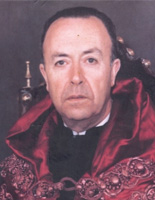 Born in Braga in 1916. Doctorate in Law from the University of Coimbra in 1941. From 1948 Professor and Dean of the Coimbra Law School between 1958 and 1961, when he was appointed President of the University. He held this post for one year.
Born in Braga in 1916. Doctorate in Law from the University of Coimbra in 1941. From 1948 Professor and Dean of the Coimbra Law School between 1958 and 1961, when he was appointed President of the University. He held this post for one year.
He collaborated in the reform of the Portuguese Code of Civil Law ; in particular, in the chapter on the family, topic of his doctoral dissertation.
He was a full member of the Portuguese Academy of History. Married to Ofelia Garcia, he had 9 children. He died in 1977. His beatification process is in progress.
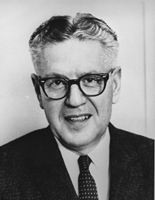 Professor Ralph M. Hower began his career studying economics at the University of Kansas. He then spent three years studying modern history at Oxforx, thanks to one of the Rhodes Scholarships, at graduate, where he was awarded a Rhodes Scholarship for three years.
Professor Ralph M. Hower began his career studying economics at the University of Kansas. He then spent three years studying modern history at Oxforx, thanks to one of the Rhodes Scholarships, at graduate, where he was awarded a Rhodes Scholarship for three years.
On this dual basis of a scientific training as an economist and historian, Hower began the second stage of his academic life, first at Kansas and then at Harvard as a historian of economics.
At Harvard, he joined forces with other scholars in the endeavour to incorporate the activities and influence of entrepreneurs and modern companies on the development of society into the history of culture in a scientific manner. Professor Hower was thus able to make a decisive contribution to a broadening of the traditional scope of the Humanities, integrating into it an understanding of one of the most characteristic phenomena of contemporary society: that of the modern business and the new human subject of "managers".
At the end of the Second World War, he joined the faculty of Harvard Business School to begin the third and final brilliant stage of his academic history. Hower returned to explore new disciplines in the ever-widening territory of the human sciences. He became involved in Human Relations and Organizational Behavior.
He was twice a member of IESE's Visiting Professor , and a member of the advisor committee for his MBA.
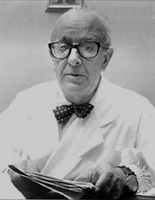 Carlos Jiménez Díaz studied all his studies in Madrid, obtaining his doctorate in Medicine in 1919.
Carlos Jiménez Díaz studied all his studies in Madrid, obtaining his doctorate in Medicine in 1919.
He then spent two years in Germany, training especially in the basic medical sciences, where he was able to anchor his keen clinical sense in a solid anatomopathological, biochemical and experimental basis. He became a professor of medical pathology at the age of 24. After holding the chair of Medical Clinic in Seville for two years, in 1926 he moved, after a new competitive examination, to Madrid, where, until his death, he was a brilliant teacher, attracting both students and numerous medical professionals.
He founded the Instituto de Investigaciones Clínicas, later the Fundación Jiménez Díaz, and headed a school of internal medicine that had a notable influence on the development of medical pathology in Spain.
He was the author of important works, including Lecciones de patología médica (1934-1952), and also created the Revista Clínica Española.
He was a full member of the National Academy of Medicine and an honorary member of several Academies; honorary doctor for the universities of Coimbra and Navarra and a founding member of the International Society of Internal Medicine - which he presided over from 1960-64 - and of the Societies of Allergy, Cardiology and several others. He was the first president of the Association of Friends of the University.
He died suddenly, while working in his own clinic, on 19 May 1967.
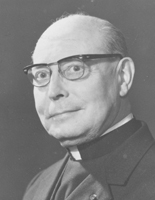 Worked as an expert witness for the Second Vatican Council. Scholar and researcher of Church law.
Worked as an expert witness for the Second Vatican Council. Scholar and researcher of Church law.
He was born in Hamont (Limburg) in 1905. In 1923, he began his programs of study of Philosophy and Theology at seminar of Liège. He was ordained priest in 1929. In 1932 he obtained the doctorate at Canon Law.
After a brief period as a professor at the seminar of the diocese of Liège (1932-1934), Rev. Willy Onclin began teaching, in 1937, at the Catholic University of Louvain, at the department of Political and Social Sciences.
Between 1938 and 1975, the year of his retirement, he introduced several hundred canonists to the History of Canon Law, the study of the Sources of Canon Law, Marriage Law, Church-State relations and the Theology of Canon Law.
He worked as an expert witness for the Second Vatican Council and participated in the essay of the new Code of Canon Law after the Council.
In 1975, Pope Paul VI awarded him the highest degree scroll that can be granted to a priest, that of Prothonotary Apostolic.
He died in July 1989.
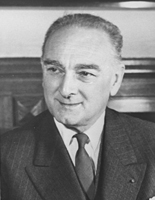 French biochemist born in Sorques in 1901. He was President of the University of Paris.
French biochemist born in Sorques in 1901. He was President of the University of Paris.
He devoted himself mainly to the study of protein biochemistry and in particular to the study of respiratory pigments and enzymatic proteins. In particular, he studied the behaviour of iodine in thyroid function and comparative biochemistry.
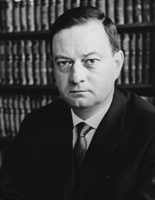 Sociologist and historian born in Heidelberg (Germany) in 1920. He fought within the Catholic youth movements opposed to Nazism.
Sociologist and historian born in Heidelberg (Germany) in 1920. He fought within the Catholic youth movements opposed to Nazism.
As director - and later publisher - of the Rheisnischer Merkur for almost twenty years, he was the main promoter of the prestige and public influence of this cultural-political weekly - one of the most important in Germany. The spiritual heir of the great 19th century German Catholic publicist Joseph Görres, Roegele, like him, remained faithful to the immutable values of the Christian tradition, but he was constantly renewing and progressive, in line with the new demands of each day.
He was one of the most brilliant commentators and interpreters of the sociological and historical aspects of the Second Vatican Council. He was Full Professor of Journalism at the University of Munich, and director of its Institute for Communication Research.
1972
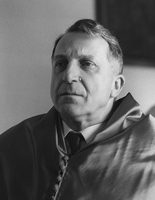 Born in 1911, at the age of twenty he obtained the Degrees of graduate in Law and History. He obtained his doctorate in law in 1937, became a professor at the University of Toulouse in 1937 and has been a full professor at Degree since 1940.
Born in 1911, at the age of twenty he obtained the Degrees of graduate in Law and History. He obtained his doctorate in law in 1937, became a professor at the University of Toulouse in 1937 and has been a full professor at Degree since 1940.
As a member of the Consultative Committee of French universities, no university problem is alien to him. He radiates his teaching throughout France, and many universities in other countries benefit from his collaboration and his committee.
He carried out his research work in a wide range of fields, three of which are particularly noteworthy: the French History of Law , the Canonical History of Law and the history of the Church. His work, abundant in works and studies, includes a work on Avignon Private Law in the 14th and 15th centuries, which he published in 1936; a treatise on Private History of Law , published with the collaboration of Professor Malafosse; and a monograph that culminates his numerous works on the Church at the time of the Great Schism and on the Canonical History of Law in the 15th century.
In 1954 he became director of the Institute of Political Studies in Toulouse, and for many years he was a member of the admission juries of the French National School of Administration and the National Centre for the Judiciary.
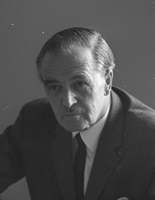 Born in Nuremberg, he studied medicine and natural sciences together at the University of Freiburg im Breisgau.
Born in Nuremberg, he studied medicine and natural sciences together at the University of Freiburg im Breisgau.
The contact with the disciplines of natural sciences gave him a broad scientific background, which later had an effective influence on all his work, which was conceived with a profound biological vision. He completed his medical studies and obtained his doctorate at the University of Würzburg.
In 1925 he was awarded the venia legendi in Pathology and General Pathology on the basis of a habilitation work on amyloidosis, a field he has since then continued to cultivate until he became a world leading authority. A year later he achieved universal fame by describing a new disease, aleukemic reticulosis, now known as Letterer-Siwe disease.
In 1934 he was appointed director of the Institute of Pathology at the Friedrichstadt Hospital in Dresden and, four years later, he received a call from the University of Tübingen to take up the chair of Pathological Anatomy, as Full Professor. He held this position at position for 30 years, and achieved for Tübingen Pathology a high prestige in the scientific world. This fact, together with his loyalty to his university, led him to refuse attractive calls from other prestigious universities. His extensive scientific output can be found in more than 400 publications.
All this enormous work earned him an honorary degree from the University of Heidelberg and the appointment as a member of numerous scientific societies.
He was already professor emeritus in Germany, and between 1965 and 1971 he set up the department of Immunology and Experimental Pathology at the University of Navarra.
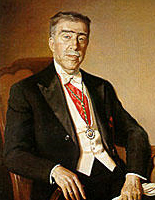 Better known as the Marquis of Lozoya for being the ninth holder of this noble title, he was a historian, art critic, politician, civil servant and writer.
Better known as the Marquis of Lozoya for being the ninth holder of this noble title, he was a historian, art critic, politician, civil servant and writer.
In his adolescence he studied the high school diploma at high school in Segovia. Later, he studied Law and Philosophy and Letters. He was Full Professor of History of Spain and History of Art at the universities of Valencia (1923-46), Madrid (1946-60) and Navarra (1963-69).
In 1920 he obtained the award Fastenrath of the Royal Spanish Academy (RAE). In 1936 he was elected deputy for Segovia on the lists of the CEDA. From 1939 to 1951 he occupied the position of director general of Fine Arts. Later, in 1952, he was appointed director of the Spanish Academy of Fine Arts in Rome. In 1964 he was appointed director of the high school of Spain and later, in 1978, director of the Royal Academy of Fine Arts of San Fernando. He was vice-president of the Hispanic Society of America and was a member of the faculty of several foreign academies. He presided over the Centro Segoviano from 1959 until his death in 1978.
Among his many works, a History of Hispanic Art (5 vols., 1931-46) and a History of Spain (6 vols., 1969-70), which was also published in fascicles, stand out for their monumentality and documentary richness. The rest of his work exceeds one hundred titles.
1974
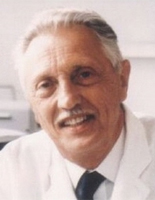 French medical geneticist, born in 1926 and died in 1994, who discovered that Down's syndrome is due to the presence of an extra chromosome.
French medical geneticist, born in 1926 and died in 1994, who discovered that Down's syndrome is due to the presence of an extra chromosome.
After studying medicine, he began working in 1952 as researcher at the CNRS, where he became director ten years later. International expert on atomic radiation. In 1958, at the age of 32, he discovered the first chromosomal anomaly in man: trisomy 21. Later, with his collaborators, he discovered the mechanism of many more chromosomal diseases, thus opening the way to cytogenetics and modern genetics.
In 1963, he discovered the chromosomal disease known as cat's meow syndrome or cri du chat. In 1964, he became the first Professor of Fundamental Genetics at the School of Medicine in Paris. The following year, he was appointed head of the department of specialization program at the Necker-Enfants Malades hospital in the French capital. There, until his death, he worked on the care of sick children, searching for effective therapies against anomalies causing subnormality and research into genetic disorders in general.
In 1974, he became a member of the Pontifical Academy of Sciences; in 1981, of the Academy of Moral and Political Sciences; and in 1983, of the National Academy of Medicine. He was also a member of foreign academies, such as the Swedish Academy of Sciences, the American Academy of Humanities and Sciences (Boston), and the Royal Society of Medicine in London.
He was appointed honorary doctor by several universities. He received several scientific awards, both in France and abroad, as he was recognised as one of the world's leading experts in genetics.
In 1994, he was appointed the first life President of the Pontifical Academy for Life.
His commitment to the defence of human life translated into continuous public interventions and activity within the association "Laissez-les vivre", of which he was a scientific advisor and one of the promoters. He was also president of "Secours aux futures mères", an organisation dedicated to helping pregnant women in difficult situations.
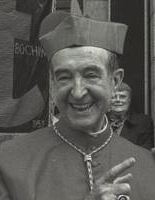 The German Cardinal Franz Hengsbach studied at the seminaries in Paderborn and Freiburg. In 1944 he received his doctorate in theology from the University of Munich.
The German Cardinal Franz Hengsbach studied at the seminaries in Paderborn and Freiburg. In 1944 he received his doctorate in theology from the University of Munich.
He was ordained a priest in 1937. From 1948 to 1958 he was director of the pastoral office in Paderborn. In 1952 he was appointed Domestic Prelate of His Holiness and University Secretary of the Central Committee of German Catholics. In 1953 he was appointed auxiliary bishop of Paderborn and titular bishop of Cantanus by Pope Pius XI; and in 1958, bishop of Essen.
He founded Adveniat, an organisation of the German episcopate to help the Catholic Church in Latin America.
From 1962 to 1965, he attended the Second Vatican Council. He was appointed chairman of the German Bishops' Commission for Universal Church Affairs in 1976. He was appointed member of the committee of the European Bishops' Conference in 1977.
Pope John Paul II created him a cardinal in 1988. He died at the age of 80 and is buried in the crypt of Essen Cathedral.
1989
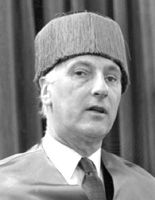 Born in Rotherham (England) in 1935. Married and father of three children. Full Professor from department of Materials Science, University of Sheffield.
Born in Rotherham (England) in 1935. Married and father of three children. Full Professor from department of Materials Science, University of Sheffield.
He holds valuable industrial patents, and his scientific curriculum is enriched with more than 150 articles in the most excellent international journals in the field of Materials and metallurgy. He was a pioneer in establishing the scientific instructions of hot forming of Materials metals.
He is a recognised authority in the field of slow creep, and in the interaction of second phase precipitation and deformation. His contributions to the theories of plastic deformation are very relevant.
He has given courses, seminars and lectures at the world's leading universities and research centres and is currently an external consultant to leading companies in the metallurgical sector, consultant .
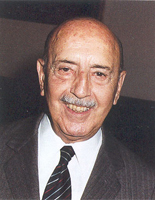 He was born on 19 July 1912 in Reinosa (Cantabria). He studied Medicine in Salamanca and Pharmacy in Madrid, where he obtained both doctorates at the Central University. He was a resident in London and Paris from 1934 to 1936, and in 1940 he obtained the Chair of Biological Chemistry at the School de Farmacia in Madrid, where he was Dean and is Dean honorary.
He was born on 19 July 1912 in Reinosa (Cantabria). He studied Medicine in Salamanca and Pharmacy in Madrid, where he obtained both doctorates at the Central University. He was a resident in London and Paris from 1934 to 1936, and in 1940 he obtained the Chair of Biological Chemistry at the School de Farmacia in Madrid, where he was Dean and is Dean honorary.
He was Head of the Biochemistry Section of the "Cajal" Institute of the Higher committee for Scientific Research and in 1965 he created the Biochemistry department of the School of Pharmacy as a center coordinated with the committee. In doctorate he has teaching Biochemistry of microorganisms, Applied Enzymology, Clinical and Applied Biochemistry and Vitamology and Hormonology.
He was honorary doctor for several Spanish universities and other countries; and Knight of the Legion of Honor. He received the Gran Cruz de Sanidad, the Gran Cruz de Alfonso X Sabio and the Gran Cruz del Mérito professor.
He has been director of the Royal Academy of Pharmacy (of which he is now honorary director ), president of the Spanish Biochemistry committee , delegate of Spain to the International Union of Biochemistry and director of the Institute of Physiology and Biochemistry of the CSIC.
He died in Madrid on April 23, 2005.
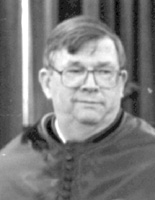 John H. McArthur For the past 15 years, John H. McArthur has been the Dean of Harvard Business School, a period of much growth but also of much criticism for business education.
John H. McArthur For the past 15 years, John H. McArthur has been the Dean of Harvard Business School, a period of much growth but also of much criticism for business education.
McArthur had position to launch the Harvard Business School Publishing Corp., the publishing division of the School Management School dedicated to enhancing the revenue and promotion of its Harvard Business Review magazine, which disseminates study topics, videotapes and seminars via satellite. In addition, on a strictly academic level, McArthur ordered a review of the subjects included in the programme.
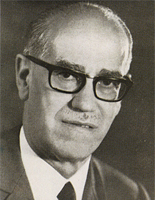 Historian, philologist, medievalist and heraldist born in Estella in 1907. In 1923 he began his studies in Law and History simultaneously in Madrid. graduate with award extraordinary (1928), and five years later he was awarded the title of Doctor with a thesis on the mediaeval fueros of Navarre, Degree .
Historian, philologist, medievalist and heraldist born in Estella in 1907. In 1923 he began his studies in Law and History simultaneously in Madrid. graduate with award extraordinary (1928), and five years later he was awarded the title of Doctor with a thesis on the mediaeval fueros of Navarre, Degree .
He joined the Cuerpo Facultativo de Archiveros, Bibliotecarios y Arqueólogos (Faculty of Archivists, Librarians and Archaeologists) by competitive examination (1930), with place as a civil servant at the file Histórico Nacional. Linked to Claudio Sánchez-Albornoz's team researcher , he also worked at the Centro de Estudios Históricos and its Instituto de Estudios Medievales, officially revalidated in January 1932. The following year he was granted a scholarship by the Junta de Ampliación de Estudios e Investigaciones Científicas for a stay in Paris, where he explored and collected Materials Spanish documents in the National Archives and the Manuscripts Section of the National Library Services .
During the Spanish Civil War, Lacarra worked hard to save the Spanish bibliographic treasure. Once the war was over, he won the chair of Medieval Spanish History at School of Humanities and Social Sciences at the University of Zaragoza, which he held for more than forty years until his death in 1987. He was successively secretary, Associate Dean (1943) and Dean (1949-1967) of his School; and later (1972-1975) he held the position de Vice President, then the only one, of the University itself.
In 1941 he founded the Centro de Estudios Medievales de Aragón, and at the behest of the Diputación Foral de Navarra he helped to found the Institución Príncipe de Viana in Pamplona.
In 1945 he founded a journal entitled Estudios de Edad average de la Corona de Aragón. He was at the head of institutions such as the School of Medieval Studies, the summer university of Jaca and the file of Protocols of Saragossa.
He has been an outstanding lecturer throughout his career, not only in Spain but also in the rest of the world. He presented his studies on the Spanish Age average in Rome, Stockholm and Texas. He was invited as a guest lecturer at several universities, including the prestigious University of Berkeley. In 1970 he became a full member of the Royal Academy of History. Named honorary doctor by the University of Toulouse (1969), by the University of Deusto in 1982 and by the University of Zaragoza in 1985, the University of Navarre, his homeland, conferred this distinction on him posthumously in 1989.
Lacarra's books focus mainly on the study of Aragon and Navarre in the age of average, from the conquest of Saragossa by Alfonso I the Battler to the honours and tenures of Aragon in the 11th century. He gave special importance to the urban development of the Aragonese population centres, especially Jaca. As a biographer, Lacarra analysed the life and psychology of the Battler, a character who always captivated him.
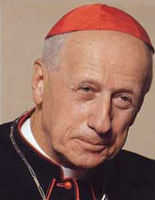 Born in Espelette (France) in 1922. After studying at the minor seminar in Ustaritz, he continued his scientific and spiritual preparation at the major seminar in Bayonne and at the Pontifical Gregorian University in Rome, where he obtained the licentiate degree at Sacred Theology and the doctorate at Canon Law.
Born in Espelette (France) in 1922. After studying at the minor seminar in Ustaritz, he continued his scientific and spiritual preparation at the major seminar in Bayonne and at the Pontifical Gregorian University in Rome, where he obtained the licentiate degree at Sacred Theology and the doctorate at Canon Law.
Ordained a priest on 13 July 1947, he began his pastoral ministry, first in his native diocese of Bayonne, before becoming, in 1961, Deputy Director of the Secretariat of the French Episcopate, and becoming involved, at the same time, in the creation of a secretariat for pastoral care. From 1966 to 1970, he held the position of University Secretary of the French episcopate, before becoming titular bishop of Gemelle di Numidia and auxiliary bishop of Paris in 1969. In 1970, he became Archbishop of Marseille (until 1984) and in 1975 he succeeded Cardinal Marty as president of the French Episcopal Conference. He was re-elected in 1978 (until 1981). From 1975 to 1982, he was also prelate of the "Mission de France".
From 1965, the year of the closing of the Second Vatican Council, he was secretary of the Committee of link of the Bishops' Conferences of Europe, and in 1971 he became the first president of the new European committee of the Bishops' Conferences. He was re-elected to the position in 1975 (until 1979). He was also one of the main promoters of the European ecumenical meeting in Chantilly.
He participated in the work of the Synod of Bishops and was, in 1974, a member of the committee of the Synod Secretariat.
On 8 April 1984 he was called to Rome and appointed President of the Pontifical committee for Justice and Peace (where he remained until 1998) and President of the Pontifical committee Cor Unum (where he remained until 1995). Over the years, Cardinal Etchegaray has always carried out tireless service for peace, human rights and the needs of the poor, bringing the Pope's message and love to many nations.
He was created and proclaimed a cardinal by John Paul II in 1979. In 2005, Benedict XVI approved his election as Associate Dean of the high school of Cardinals.
He is a member of the French Academy of Moral and Political Sciences and of the Pontifical Academy of Social Sciences.
In 2002 he was appointed Officer of the Legion of Honour. In 2003 he was awarded the "Raoul Follereau" peace prize award and in 2004 the UNESCO Peace Prize award .
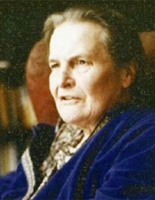 Elizabeth Anscombe (1919-2001) is one of the most important figures in twentieth-century Anglo-Saxon philosophy. She studied at Oxford University and, in 1970, became Professor of Philosophy at Cambridge.
Elizabeth Anscombe (1919-2001) is one of the most important figures in twentieth-century Anglo-Saxon philosophy. She studied at Oxford University and, in 1970, became Professor of Philosophy at Cambridge.
She was a favourite disciple and executor of Ludwig Wittgenstein (one of the most influential philosophers in philosophy in the last century). sample Her works include Intention (1957) and the three volumes of Collected Philosophical Papers (1982), which are a good example of the breadth of her philosophical interests and the rigour that characterised her. An original thinker and attentive to reality, she took an active part in the main ethical and political debates of her time. She was a visiting professor at several universities, and received numerous prizes and distinctions. She was married to Peter Geach, who like her was a disciple of Wittgenstein, as well as a renowned professor of philosophy and logic.
1994
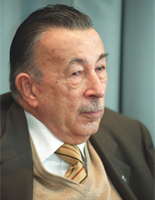 Born in Barcelona in 1925, he graduated in Law from the University of Barcelona ( graduate ) and holds a PhD in Law from the University of Madrid (now Complutense).
Born in Barcelona in 1925, he graduated in Law from the University of Barcelona ( graduate ) and holds a PhD in Law from the University of Madrid (now Complutense).
He has been Full Professor of Procedural Law at the University of Granada; Full Professor at the School of Law of the University of Navarra, where he was Associate Dean and Dean; and Full Professor of Procedural Law at the University of Barcelona, of which he was President between 1973 and 1974.
He has published several scientific research papers. He is a permanent board member of the General Codification Commission, a member of issue Spanish Institute of Procedural Law and a board member of the Commission for the transfer of services and competences of the pre-autonomous Generalitat. Among other awards, he has been awarded the Grand Cross of the Order of Alfonso X Wise, the Encomienda de issue of the Order of Civil Merit and the Cross of Honor of the Order of San Raimundo de Peñafort.
He is a founding partner of the law firm Carreras Llansana.
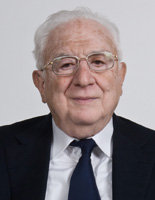 Francesco Cossiga was President of the Italian Republic from 1985 to 1992 and a senator for life until his death in Rome at the age of 82 in August 2010.
Francesco Cossiga was President of the Italian Republic from 1985 to 1992 and a senator for life until his death in Rome at the age of 82 in August 2010.
He devoted much of his professional life to the study and teaching of Constitutional Law at the University of Sassari, where he also began his political life. After a period as a national MP, he was appointed Undersecretary of Defence and later Minister of the Interior, position from which he resigned after the assassination of Aldo Moro in 1978. In 1983 he was elected President of the Senate of the Republic and in 1985 President of the Republic. His presidency was characterised by appeals to politicians and parliamentarians to achieve institutional reform, and attention to the problem of justice and its organisation.
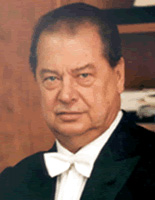 Rafael Frühbeck studied violin, piano, harmony and composition at the conservatories of Bilbao and Madrid, and later orchestral conducting in Munich. director In 1962 he became titular conductor of the Orquesta Nacional de España after the death of Ataulfo Argenta, position , which he held for 16 years.
Rafael Frühbeck studied violin, piano, harmony and composition at the conservatories of Bilbao and Madrid, and later orchestral conducting in Munich. director In 1962 he became titular conductor of the Orquesta Nacional de España after the death of Ataulfo Argenta, position , which he held for 16 years.
Subsequently, he was director general music director and conductor of the Düsseldorf Symphony Orchestra and the Montreal Symphony Orchestra. He made his debut in the USA in 1968 with the Philadelphia Symphony Orchestra, and subsequently conducted the orchestras of New York, Chicago, Boston, etc. In Europe, he has regularly conducted the Berlin, Munich and Hamburg Philharmonic Orchestras, the Symphony Orchestras of various German radio stations, the Vienna Philharmonic, the London Philharmonic and Japanese ensembles such as the Nippon Yomiuri in Tokyo, as well as the Israel Philharmonic. In 2009 he received the Gold Medal of Fine Arts from the King and in 2010, the Medal of the Palau de la Música de Valencia.
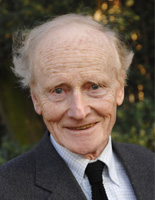 Robert Spaemann is a renowned German philosopher, Full Professor of Philosophy at the universities of Heidelberg, Stuttgart and Munich, and honorary doctor for several universities.
Robert Spaemann is a renowned German philosopher, Full Professor of Philosophy at the universities of Heidelberg, Stuttgart and Munich, and honorary doctor for several universities.
He grew up in Cologne. He studied in Münster, Munich, Paris and in Fribourg, Switzerland. He is a member of committee of the journal Humanitas and author of numerous books and articles, translated into twelve languages. Among the most outstanding translated into Spanish are Crítica de las utopías políticas, Conceptos éticos fundamentales, Lo natural y lo racional and Felicidad y benevolencia.
He has been Professor of Philosophy at the Universities of Stuttgart, Heidelberg - where he succeeded Gadamer - and finally, until his retirement in 1992, at the Ludwig-Maximilian University of Munich. He is a member of the Pontifical Academy for Life.
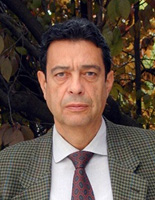 Manuel Elices was born in Mahón (Menorca) in 1939. He holds a degree in Civil Engineering from the Polytechnic University of Madrid, graduate in Physical Sciences from the Complutense University and a PhD in Civil Engineering.
Manuel Elices was born in Mahón (Menorca) in 1939. He holds a degree in Civil Engineering from the Polytechnic University of Madrid, graduate in Physical Sciences from the Complutense University and a PhD in Civil Engineering.
He is a numerary member of the Spanish Academy of Engineering, an academician of the European Academy and Full Professor of Materials Science at the Polytechnic University of Madrid. He was the promoter of the new degree program of Materials Engineering and has been director of this degree program at the Polytechnic University of Madrid.
Manuel Elices is also Visiting Professor in several European, U.S. and Latin American universities. He is one of the founders of the Spanish Fracture Mechanics group , member of the European Fracture committee and co-founder of the association International Fracture Mechanics of Concrete Structures. He is a member of the Real Academia de Ciencias Exactas, Físicas y Naturales since 1994.
He has published more than 300 papers in international journals, twelve books and contributions in twelve others. He is an associate publisher in several international journals of his specialization program.
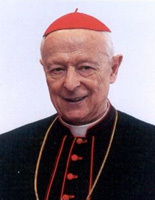 Born in 1920, Leo Scheffczyk's life was devoted to research and teaching theology at the universities of Tübingen and Munich, within the current of renewal that was forged in his country in the inter-war period.
Born in 1920, Leo Scheffczyk's life was devoted to research and teaching theology at the universities of Tübingen and Munich, within the current of renewal that was forged in his country in the inter-war period.
He was a member, since 1973, of the Pontifical Marian Academy Internationalis and, since 1980, of the Bayerische Akademie der Wissenschaaften and the Academica Theologica Romana. He also served as consultant of the Pontifical committee for the Family and as domestic prelate of His Holiness. He was publisher for several years of the journal Münchener Theologische Zeologische Zeischrift and also founded the journal Forum Katholische Theologie.
Author of sixty monographs and several hundred articles, many of his books have been translated into Spanish, French, English and Italian. His research on Systematic Theology stands out, with a historical orientation aimed at understanding the development of dogma in the different epochs, especially in the period after the Second Vatican Council.
In 1978 he was appointed Prelate of Honour of His Holiness, and in 2001 he was created Cardinal by John Paul II.
He died in Munich on 8 December 2005.
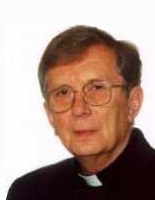 Tadeusz Styczen was born in 1931 in Wolowice, Poland. He attended a school belonging to the Society of the Divine Saviour, an order established in Poland in 1900, which he joined years later.
Tadeusz Styczen was born in 1931 in Wolowice, Poland. He attended a school belonging to the Society of the Divine Saviour, an order established in Poland in 1900, which he joined years later.
He studied at the School of Theology at the Jagiellonian University, where he attended Karol Wojtyla's lectures. He then followed him to the School of Philosophy at the Catholic University of Lublin. He was ordained a priest of the Congregation of the Divine Saviour in 1955. He began studying philosophy in the same year. Under the guidance of Karol Wojtyla, Styczen defended his thesis and obtained his habilitation in Ethics in 1971, receiving the title of professor in 1981. He was teaching assistant and professor at the department of Ethics at the Catholic University of Lublin.
As Karol Wojtyla took on new responsibilities, he delegated his lectures and seminars to Styczen. After Wojtyla's election as Pope in 1978, Tadeusz Styczen, one of his most brilliant students, officially succeeded him in the Chair with the title of Professor of Philosophy.
He was director of the journal "Ethos" (1988-2006) and founded the John Paul II Institute within the University of Lublin, being its director until 2006 and director honorary until his death.
He was a close friend of Pope John Paul II and accompanied him on several occasions during his holidays. He was partner of the encyclical "Veritatis Splendor", professor at several universities (among them the Pontifical Lateran University and the University of Navarra) and at the International Academy of Philosophy, in Liechtenstein; consultant of the Pontifical committee for the Family and of the Pontifical committee for the Pastoral Care of Health Care Workers, member of the Pontifical Academy for Life, since its creation in 1994; and honorary doctor of the University of Navarra and of the Pontifical Lateran University, in Rome.
He was one of the priests who assisted John Paul II in his last hours.
He died in October 2010, aged 79.
1998
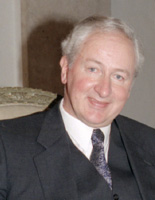 Full Professor Douwe Breimer is a member of the Royal Netherlands Academy of Arts and Sciences, the European Academy and committee Health of his country. Professor of Pharmacology and Therapeutics, he graduated in 1968 as a pharmacist from the University of Gronningen.
Full Professor Douwe Breimer is a member of the Royal Netherlands Academy of Arts and Sciences, the European Academy and committee Health of his country. Professor of Pharmacology and Therapeutics, he graduated in 1968 as a pharmacist from the University of Gronningen.
Six years later, he obtained his PhD from the University of Nijmegen. In 1975 he was appointed Professor of Pharmacology at the School of Mathematics and Natural Sciences at the University of Leiden (also in the Netherlands) and in 1986 at the School of Medicine. In 1989 he became the Director of the Research Centre of that university.
A Foreign Member of the National Academy of Pharmacy (France), in 1994 he was elected President of the European Federation for Pharmaceutical Sciences. He is also a member of the American Association of Pharmaceutical Sciences and a Councillor of the International Society for the Study of Xenobiotics. In addition, he is Vice-President of the Metabolism Section of the International Union of Pharmacology (IUPHAR) and a member of the International Innovation Advisory Board of the Dutch Centre for Medical Research (CMR).
Dr. Breimer is also a member of several national and international committees on drug research and has received honorary doctorates from the universities of Semmelweis (Hungary, 1989), Ghent (Belgium, 1990) and Uppsala (Sweden, 1992). He has also been awarded other scientific distinctions, including the Flückiger Gold Medal (Davos, Switzerland), the Nagai Foundation Award (Tokyo) and the Host Madsen Medal (International Pharmaceutical Federation).
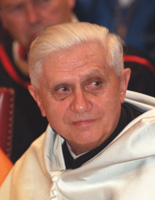 Cardinal Joseph Ratzinger, born in Marktl am Inn (Bavaria, Germany) 70 years ago, studied at technical school of Philosophy and Theology in Freising and at the University of Munich. Ordained a priest in 1951, he received his doctorate in theology two years later. From 1952, he was in charge of Dogmatics and Theology in Freising, and subsequently Full Professor in Bonn, Münster, Tübingen and Regensburg, where he was also Vice-President of that university.
Cardinal Joseph Ratzinger, born in Marktl am Inn (Bavaria, Germany) 70 years ago, studied at technical school of Philosophy and Theology in Freising and at the University of Munich. Ordained a priest in 1951, he received his doctorate in theology two years later. From 1952, he was in charge of Dogmatics and Theology in Freising, and subsequently Full Professor in Bonn, Münster, Tübingen and Regensburg, where he was also Vice-President of that university.
In 1977 he was appointed Archbishop of Munich-Freising and in the same year he became a Cardinal under Paul VI. In 1981 John Paul II appointed him Prefect of the Congregation for the Doctrine of the Faith, and since then he has also been President of the International Theological Commission and of the Pontifical Biblical Commission. Since 1986, Cardinal Ratzinger has chaired the Commission responsible for drafting the Catechism of the Catholic Church.
His numerous publications include "The New People of God" and "Theory of Theological Principles". In addition, his contribution to questions of the relationship between Christianity and pluralistic society and his growing interest in the preaching of the faith and pastoral practice are particularly noteworthy. His works such as "Christian Brotherhood", "The Face of God" and "Servant of your Joy" are in this line.
In 2005, after the death of John Paul II, he was elected Pope under the name of Benedict XVI.
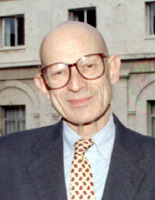 The American Julian Simon can be considered one of the world's leading experts in the study of the economic effects of population change. His research positions him as a recognised leader and undisputed authority in this field.
The American Julian Simon can be considered one of the world's leading experts in the study of the economic effects of population change. His research positions him as a recognised leader and undisputed authority in this field.
In several works, now classics, Dr. Simon concludes that population growth contributes to the betterment of world society. His books "The Ultimate Resource" and "Population Matters" discuss U.S. and global trends in resources and population, and the interactions between them.
He received his programs of study degrees in Business and Psychology from Harvard and Chicago Universities. After holding various positions at the prestigious Heritage Foundation, Hebrew University and the University of Illinois, he is currently Full Professor of Science at business at the University of Maryland and Senior Fellow at the Cato Institute. programs of study Author of 200 professional articles in specialized magazines, Julian Simon has also disseminated his knowledge in media such as The New York Times, The Wall Street Journal, Reader's Digest. In addition, his books - written in English - have been translated into other languages such as Spanish, French, German, Italian, Chinese, Hebrew, Japanese, Norwegian and Portuguese. Before joining teaching, Dr. Simon served as an officer in the U.S. Navy and has worked in the business world. He was the inventor of the "airline overbooking plan", which has been used by all US airlines since 1978.
2003
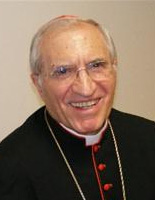 Cardinal Antonio Mª Rouco graduated in Theology at the Pontifical University of Salamanca in 1958. He subsequently obtained a doctorate in Canon Law at the University of Munich.
Cardinal Antonio Mª Rouco graduated in Theology at the Pontifical University of Salamanca in 1958. He subsequently obtained a doctorate in Canon Law at the University of Munich.
Pope John Paul II appointed him archbishop of Santiago de Compostela (1984), archbishop of Madrid (1994) and cardinal (1998). He has also been a member of the Permanent Commission of the Spanish Episcopal Conference since 1984, and its president since 1999. He has published numerous books and scientific works in Spanish and foreign journals on the theological basis of Canon Law and the problems of Church-State relations.
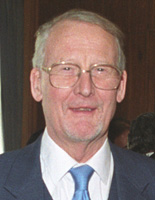 Anthony Kelly, Professor Emeritus of Science of Materials and Metallurgy at the University of Cambridge, has held various management, research and teaching positions at the Universities of Illinois and Northwestern in the USA, and Birmingham and Surrey in the UK.
Anthony Kelly, Professor Emeritus of Science of Materials and Metallurgy at the University of Cambridge, has held various management, research and teaching positions at the Universities of Illinois and Northwestern in the USA, and Birmingham and Surrey in the UK.
Among other positions, he has also been director of the laboratory National Physics Council of his country. Anthony Kelly is considered to be one of the fathers of the "compositeMaterials " and is a Fellow of the Royal Society and Order of the British Empire (OBE), among others.
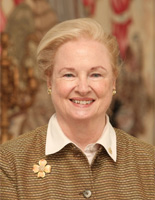
The American Mary Ann Glendon, Professor of Law at Harvard University, is an expert on human rights and Constitutional Law comparative human rights in Europe and the United States.
Glendon is president of the International Association of Legal Science and represented the Vatican at the International Conference on Women (Beijing, 1995). Her numerous books include The Transformation of Family Law and The New Family and the New Property. She has taught at Boston College and the University of Chicago.
2011
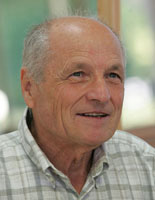 The painter Antonio López García, award Príncipe de Asturias de las Artes (1985) and award Velázquez de las Artes Plásticas (2006), is one of the representatives of contemporary Spanish realism and one of the most sought-after Spanish painters on the international art markets.
The painter Antonio López García, award Príncipe de Asturias de las Artes (1985) and award Velázquez de las Artes Plásticas (2006), is one of the representatives of contemporary Spanish realism and one of the most sought-after Spanish painters on the international art markets.
Born in Tomelloso (Ciudad Real) in 1936, his early vocation for drawing, as well as the influence of his uncle, the painter Antonio López Torres, shaped his decision to devote himself to painting when he was only 13. He then moved to Madrid to prepare for his admission to the San Fernando Academy of Fine Arts, where he remained from 1950 to 1955.
In 1955 he travelled to Italy, and, after completing his studies, from 1965 to 1969 he was professor in charge of the Preparatory Chair of Colouring at the San Fernando School of Fine Arts. In 1993 he was made a full member of the Madrid Royal Academy of San Fernando.
The painter's work is characterised by a sense of reality researcher and he is considered to be the father of the Madrid hyperrealist school. At the University of Navarra he has been teaching the Figurative Painting Workshop since 2006, where he works on the genres of the figurative tradition, such as still life, the human figure with natural models and landscapes.
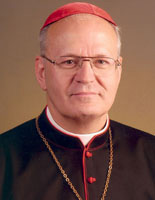 Card. Péter Erdö (Budapest, 1952) is Archbishop of Esztergom-Budapest, Primate of Hungary, President of the Hungarian Catholic Bishops' Conference and President of the committee of European Bishops' Conferences. He is the second youngest member of the high school Cardinalate.
Card. Péter Erdö (Budapest, 1952) is Archbishop of Esztergom-Budapest, Primate of Hungary, President of the Hungarian Catholic Bishops' Conference and President of the committee of European Bishops' Conferences. He is the second youngest member of the high school Cardinalate.
He was educated in the seminaries of Esztergom and Budapest, and received his doctorate in Theology (Budapest) and in Canon Law from the Pontifical Lateran University (Rome). In 1975 he was ordained a priest and became a vicar in Dorog. Subsequently, he continued his programs of study in Rome (1977-1980) and for the next twelve years, he was a professor of Theology and Canon Law at seminar in Esztergom and in Budapest. He became Full Professor in 1991 and gave numerous lectures at foreign universities. In 1992 he joined Pázmány Péter Catholic University (Hungary), where he has held the positions of President (1998-2003) and, since 2005, Chancellor.
Card. Erdö is also a member of the Hungarian Episcopal lecture . In 1999 he was appointed titular bishop of Puppi and auxiliary bishop of Székesfehérvár. After being consecrated in 2000 by Pope John Paul II, he was appointed archbishop of Esztergom-Budapest (2002) and was erected cardinal of St. Balbina (2003). He participated as an elector in the Conclave of 2005, in which Pope Benedict XVI was elected. He has also been a member of the Hungarian Academy of Sciences since 2007.
The cardinal was appointed president of the Hungarian Episcopal lecture (2005) and president of the committee of European Episcopal Conferences (2006), both for a period of 5 years. In the Roman Curia he is a member of the administrative office of State, the Congregation for Divine Worship and the discipline of the Sacraments, the Congregation for the Catholic Education , the Supreme Tribunal of the Apostolic call number , the Pontifical committee for Legislative Texts and the Pontifical committee for Culture.
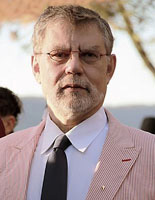 Joseph Weiler is considered one of the foremost experts on European Union law. The son of the well-known Jewish rabbi Moses Weiler, he was born in Johannesburg in 1951.
Joseph Weiler is considered one of the foremost experts on European Union law. The son of the well-known Jewish rabbi Moses Weiler, he was born in Johannesburg in 1951.
graduate D. from the University of Cambridge and a Ph.D. from the high school European University of Florence. Full Professor of International Law at the Schools Law School of the University of Michigan (1985-1992) and Harvard University (1992-2001), in 2001 he joined New York University as a university professor, an academic rank reserved for professors with venia docendi at all Schools of a campus. At NYU, he directs the Jean Monnet Center for Regional and International Economic Law and Justice; the high school Straus Center for Advanced programs of study Justice and Law; and the Tikvah Center for Jewish Law and Civilization.
Joseph Weiler is also a professor at the National University of Singapore, the department of Copenhagen Political Science and co-director of the Macau Academy of International Trade Law in China. Professor Weiler is publisher of the European Journal of International Law and the International Review of Constitutional Law, both published by Oxford University Press.
Recipient of several honorary doctorates, he is a member of the American Academy of Arts and Sciences and the author of outstanding works, some of which have been translated into Spanish, such as Europa fin de siglo and Una Europa cristiana.
2019
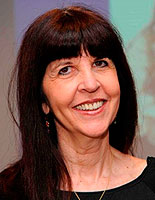 Ruth Viviana Fine, born in Argentina (1957) and of Israeli nationality, holds a degree in Latin, Spanish and Latin American Philology from the University of Buenos Aires. She holds a PhD from the Hebrew University of Jerusalem and is a professor at its department of Romance and Latin American Studies. She currently holds the Salomon & Victoria Cohen Chair in Contemporary Latin America, and directs the Institute of General Humanities and the European Forum.
Ruth Viviana Fine, born in Argentina (1957) and of Israeli nationality, holds a degree in Latin, Spanish and Latin American Philology from the University of Buenos Aires. She holds a PhD from the Hebrew University of Jerusalem and is a professor at its department of Romance and Latin American Studies. She currently holds the Salomon & Victoria Cohen Chair in Contemporary Latin America, and directs the Institute of General Humanities and the European Forum.
Specialising in literary theory and Spanish Golden Age narrative, especially the work of Cervantes, she has published more than a hundred studies in international publishers and journals. She has been distinguished with several awards, including the award of Excellence awarded by the President of the Hebrew University of Jerusalem. In 2013 the Spanish Crown awarded her the Encomienda de la Orden del Mérito Civil for her work in the development of cultural relations between Spain and Israel, and for promote the knowledge of Spanish literature.
She is founder and president of the Association of Hispanists of Israel; vice-president of the International Association of Hispanists; and board member of the International Association of the Golden Age. As a Hispanist of international prestige, the Royal Spanish Academy elected her a corresponding foreign academic in 2016.
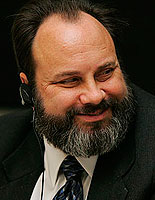 Robert G. Picard was born in 1951 in the USA, received his master's degree from California State University and his PhD from the University of Missouri. He currently teaches at Jönköping International Business School in Sweden, Tampere University in Finland, and the Institute of average and Entertainment at IESE (University of Navarra) in New York, among others.
Robert G. Picard was born in 1951 in the USA, received his master's degree from California State University and his PhD from the University of Missouri. He currently teaches at Jönköping International Business School in Sweden, Tampere University in Finland, and the Institute of average and Entertainment at IESE (University of Navarra) in New York, among others.
Until January 2015 he was director Research Fellow at the Reuters Institute for the Study of Journalism, University of Oxford, researcher of Green Templeton College and Fellow of the Royal Society of Arts. He has also chaired from its foundation until May 2018 the World average Economics and Management Conference, the world's leading congress of researchers and academics in media economics, and was one of the founders of the European average Management Association (EMMA), the first European academic association of researchers in this field topic.
Throughout his career he has received several awards, including the Journal of average Economics Award of Honour and the European average Management Education Association Award. Also in 2000, a award was established in his name for the best scientific contribution of the year in the field of media economics. He is the author and publisher of 32 books and has written more than a hundred academic articles.
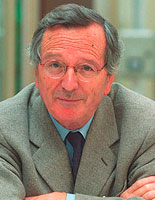 Rafael Moneo, born in Tudela (Navarre) in 1937, is considered the most internationally renowned Spanish architect. He qualified as an architect at School of Architecture in Madrid in 1961, where he taught (1966-1970). In 1972 he obtained the Chair of Elements of Composition at the School of Barcelona, returning to the Chair of Composition at the School of Madrid in 1980.
Rafael Moneo, born in Tudela (Navarre) in 1937, is considered the most internationally renowned Spanish architect. He qualified as an architect at School of Architecture in Madrid in 1961, where he taught (1966-1970). In 1972 he obtained the Chair of Elements of Composition at the School of Barcelona, returning to the Chair of Composition at the School of Madrid in 1980.
In 1976 he travelled to the USA to work at the Institute of Architecture and Urban Studies in New York and taught at the Cooper Union School of Architecture. He also taught at Princeton, Lausanne and Harvard, where he directed the department Architecture Department for five years, from 1985 to 1990, and since then has held the Josep Lluís Sert Professorship in Architecture. In 1992 he was awarded the Gold Medal for Merit in Fine Arts by the Spanish Government.
award Pritzker Architecture Prize in 1996, he has also received the Arnold W. Brunner Memorial Prize for Architecture, awarded by the American Academy of Arts and Letters, the Gold Medal of the French Academy of Architecture and the Gold Medal of the International Union of Architects. In 2001 he was awarded the award Mies van der Rohe, in 2012 the award Prince of Asturias for the Arts and in 2015 the award National Architecture Award. In 2017 he received the Praemium Imperiale from the Japan Art Association.
In Navarre he was awarded the award Príncipe de Viana in 1993 and is honorary doctor by the Public University of Navarre. In addition to teaching teaching at School of Architecture, his links with the University of Navarra were consolidated with design of the Museum of the academic centre, inaugurated in 2015.
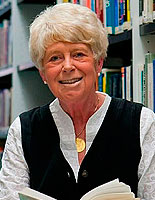 Margaret S. Archer (United Kingdom, 1943) is Professor of Sociology at the University of Warwickand a founding member and current president of the Pontifical Academy of Social Sciences. She was also the first woman president of the International Sociological Association.
Margaret S. Archer (United Kingdom, 1943) is Professor of Sociology at the University of Warwickand a founding member and current president of the Pontifical Academy of Social Sciences. She was also the first woman president of the International Sociological Association.
She holds a BA and PhD in Sociology from the London School of Economics, University of London and studied at postgraduate program at the Sorbonne University. She has lectured at Cambridge University, London School of Economics, University of Reading and University of Warwick.
Margaret S. Archer is a qualified representative of Realist Social Theory. Her central thesis is the autonomy between culture, structure and social action, three independent but not isolated realities, even if each has its own specific characteristics. This sociological theory offers a framework understanding of human action capable of answering the question of what capacity we as individuals have, through our decisions, to transform the culture and the social Structures in which we live.
His extensive research has been collected by Cambridge University Press.
Professor Archer first visited the University of Navarra in 2014, when she gave the first ICS Lecture at the Institute for Culture and Society, where she is also on the faculty of the Master's Degree in Social Science research (MICS).

